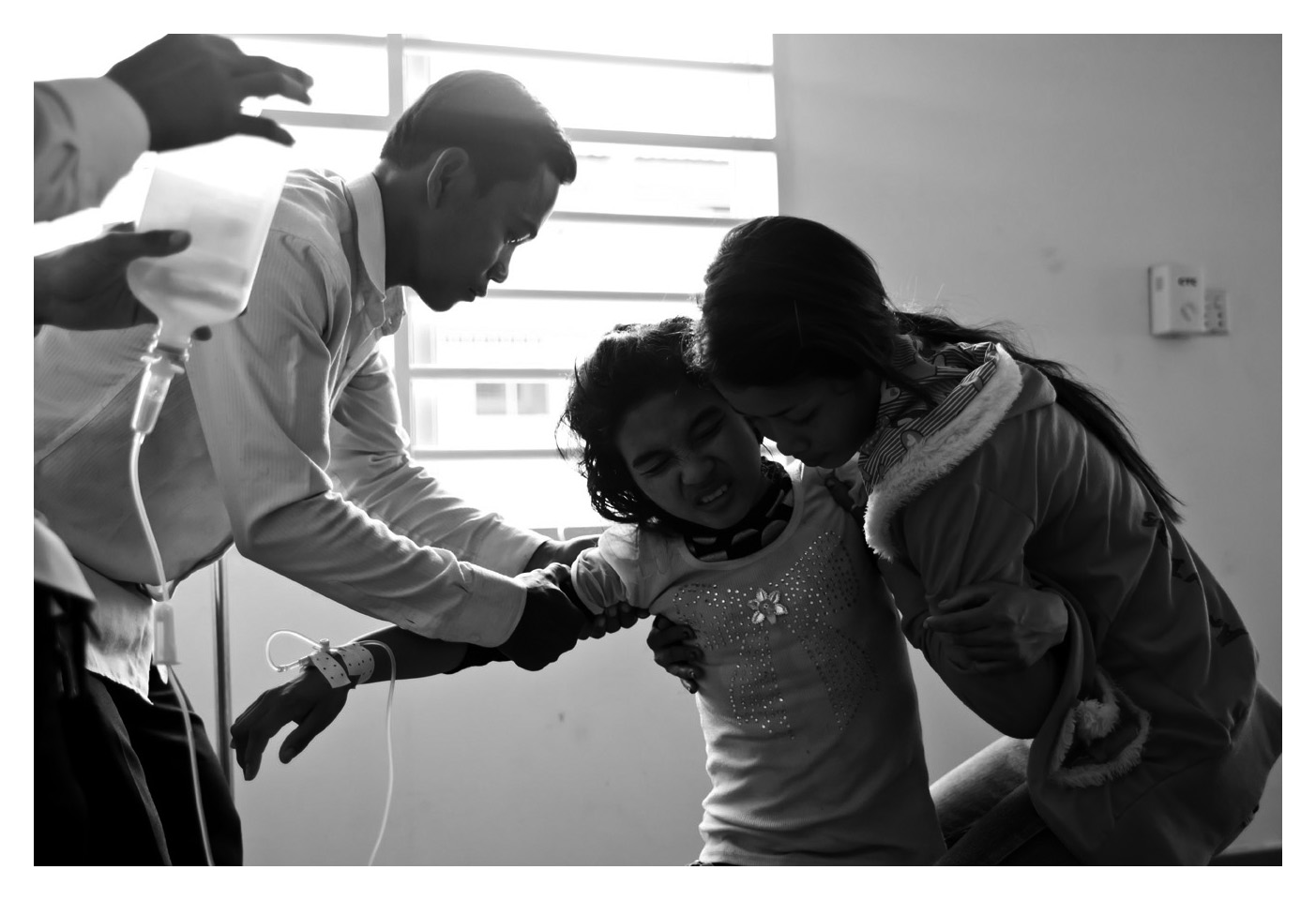WELCOME TO THE ARCHIVE (1994-2014) OF THE MAQUILA SOLIDARITY NETWORK. For current information on our ongoing work on the living wage, women's labour rights, freedom of association, corporate accountability and Bangladesh fire and safety, please visit our new website, launched in October, 2015: www.maquilasolidarity.org
November 5, 2013
 (Photo: Heather Stilwell, Labour Behind the Label)
(Photo: Heather Stilwell, Labour Behind the Label)
In the last two years, thousands of garment factory workers have fainted en masse in Cambodian garment factories.
While factory owners blame women workers for this phenomenon, labelling it mass hysteria, a recent report, "Shop ‘til they drop," by UK-based Labour Behind the Label (LBL) and the Community Legal Education Centre (CLEC) of Cambodia identifies starvation wages as one of the main causes of the faintings.
Since 2008, food costs in Cambodia have risen 70% whereas the minimum wage has only increased by 56%.
"Profits continue to increase for brands and manufacturers, but each day workers find it more and more difficult to satisfy basic needs," says CLEC's Tola Mouen.
This problem of poverty wages is compounded by poor factory conditions where factory owners ignore national and international labour laws that require proper ventilation, reasonable temperatures, access to clean water, chemical compliance requirements and workers' right to freedom of association as they cut corners to keep costs low and competitive.
Currently, the monthly minimum wage in the Cambodian garment industry is set at US$80 which, according to Labour Behind the Label is far below a living wage.
The LBL-CLEC report confirms that current wages do not allow workers to purchase the minimum dietary requirements and caloric intake necessary to carry out the demanding physical labour of the garment industry.
"The downward spiral of cheap clothing has led to a situation where people who make our clothes are paid starvation wages and can't afford to eat or to feed their children," says LBL's Anna McMullen.
According to the report, a 3,000 calorie daily diet is needed; however most workers, struggling to make ends meet, only consume 1,600 calories. Meanwhile, the failure of the Cambodian government to increase the mini mum wage has led to wide-scale protest and strikes.
"The fact that virtually all factories, industry-wide, violate Cambodian labour law [by] keeping workers on fixed duration or temporary employment contracts, often for six or more years, means that workers can be fired with no notice or cause, including for refusal to work inhumane overtime hours," says David Welsh of the AFLCIO Solidarity Center in Cambodia. "Workers are completely vulnerable, and all brands are complicit, because they pressure suppliers to meet unrealistic order deadlines."
Since the beginning of 2013, Cambodian garment workers have carried out over 83 strikes and have taken to the streets to demand an end to temporary employment contracts, an increase in the minimum wage to US$150 Maquila Solidarity Update a month, and compliance with national and international law on working conditions and collective bargaining rights.
Starting in January of 2014, the International Labour Organization's Better Factories Cambodia (BFC) program will recommence the public disclosure of findings from its factory inspections when factory owners are unwilling to take corrective action. This decision has already generated considerable resistance from the factory owners.
Meanwhile, Cambodian unions and labour rights NGOs involved in the Asia Floor Wage Alliance are demanding significant increases in the minimum wage and calling on brands to subsidize an in-factory lunch program.
Click here to access the report.